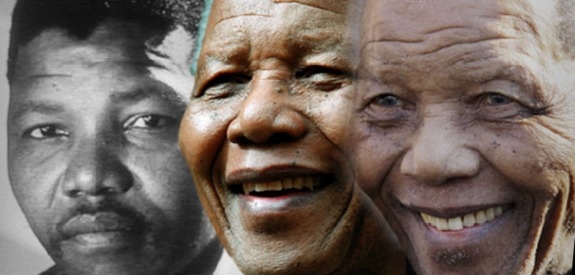The myth and the heritage
When talking of Nelson Mandela, many focus on his niceness and his propensity to forgive those who jailed him for 27 years. Fears for the future usually follow. Mandela stood for reconciliation, rainbow nation, togetherness, (and sugar, spice and all things nice.) If there was no white genocide in South Africa, that was Madiba’s work. What will happen when he goes? His critics have taken him on precisely because of all that niceness. The black majority is still penniless. A real revolution might actually have been a good idea. Maybe Madiba was just a little bit of a sell-out?
Both viewpoints are wrong. Mandela was never just nice. He led the ANC’s guerrilla army, went on arms buying trips all over Africa and was a ‘terrorist’ in the eyes of the western world. When evidence emerged of covert weapons deliveries to violent anti-ANC groups, Mandela called his white reconciliation partners ‘liars’ and stopped negotiations in what was really not a nice speech.
He also didn’t hesitate to take on his own. When Aids-denialist Thabo Mbeki ranted about ‘white people who thought black people had diseases’, Mandela saw that many people, black and white, actually were suffering from a disease, and that they needed medicines. He did not ask which group anybody in the discussion belonged to: he simply distinguished right from wrong and found an answer that was morally right.
But, though he exuded this moral value system, it was not his personal invention. It had been developed by Mandela’s movement, the African National Congress, was shared by his fellow leaders and was called ‘non-racialism’. Non-racialism, very practically, said that contributions towards a more just South Africa could, and should, be made by all people. There should be white comrades in the ANC, and white ministers in Mandela’s Government of National Unity. That was not an issue of being nice to whites, but of accepting that, just like everybody else, whites must be encouraged to do their bit.
When it came to government, whites knew how to work it. They had, after all, invented and developed the state machinery as a tool of oppression. Under President Mandela, they were now asked to work that machine as a tool for good. He would tell them what to do, and they would know how to do it. Being human, they would most often do it gladly, too. Because as apartheid crumbled, acceptance had grown that the ANC and Mandela represented the moral high ground.
The ANC politicians of nowadays have difficulty maintaining that morality. The HIV epidemic revived huge traumas, and similarly, challenges of power, corruption and crime, overshadow issues of right and wrong in todays’ political discourse. (More in-depth reasons for this will be explored in upcoming editions of The ZAM Chronicle.) But Mandela’s passing will hopefully come with a silver lining: of bringing to centre stage once again, his generation’s philosophical heritage. - the Editors


